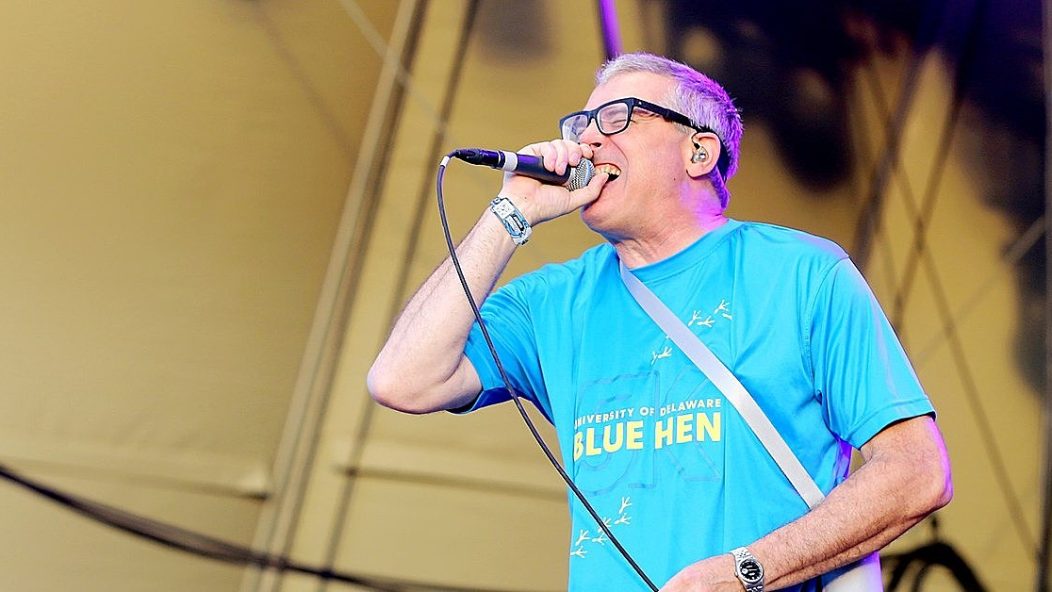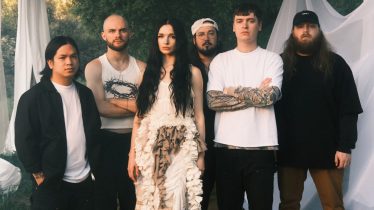
These bands paved the way for pop punk, from Descendents to NOFX
“Teenage dream, so hard to beat…”: 1970s pop-punk roots
As long as there’s been punk rock, pop punk — a more tuneful variant — has existed. What’s wrong with washing down your high-speed guitar crunch with some sunny melodies? Many of the earliest punk rockers grew up in the ’60s, their ears glued to transistor radios. They were therefore raised on the 2:30 pop single in all its three-chord glory. They appreciated the Beatles and the Beach Boys, and especially the harder/louder bands with a knack for a good hook like the Kinks. It’s why Kinks lead guitarist Dave Davies identified to The Austin Chronicle in 1996 the link between his band and early punk: “Good pop songs played with a little bit of aggression.”
Even as the New York Dolls tore up the Mercer Arts Center in 1972, laying groundwork for a tough new downtown rock ‘n’ roll scene, a quartet called the Poppees tried their damnedest to evoke the Beatles on The Ed Sullivan Show. So accurate were air-tight pastiches such as “Jealousy,” they could have become the cast of Beatlemania. They slotted nicely onto bills at Max’s Kansas City and CBGB a few years later, as the Dolls’ children invented a new stripped-down rock ethic. Bomp! Records chieftain Greg Shaw took notice, pressing some of the Poppees’ crystalline-harmonies-and-Rickenbackers teen ravers onto a pair of 45s in the mid-’70s.
Read more: 11 bands influenced by New York Dolls, from Social Distortion to Guns N’ Roses
Ramones cut closer to the bone. “Chainsaw pop” has long been the acceptable descriptor of their mix of ramalama guitars and singer Joey Ramone’s wounded romanticism. This was the sound of Brill Building pop squeezed through a dimed-out Marshall amp. It’s hard not to imagine Murray The K spinning golden Ramones goodies such as “Rockaway Beach” or “I Wanna Be Your Boyfriend” between the Ronettes and the Four Seasons on 1010 WINS in 1964. But they weren’t the only New York punks creating a new pop ethic for kids attending shows at The Bowery.
Blondie were even poppier, right down to Jimmy Destri’s Farfisa organ and Debbie Harry trilling arch singalongs such as “X Offender” as if they were Shangri-Las remakes. Even Stiv Bators of Dead Boys succumbed to his yen for a jangly Rickenbacker and a callow melody upon going solo in 1979. He shifted to such bruising pop gems as a remake of Cleveland garage greats the Choir’s “It’s Cold Outside.”
Read more: 12 great standalone punk-rock singles, from the Clash to the Libertines
England’s granite-tough, politically charged punk scene wasn’t immune to a love of perfect pop, either. None of the top British bands — Sex Pistols, the Clash — were devoid of melody or hooks. But some were more pop-oriented than others. Think of the Boys setting tales of knife fights and young women with inexpertly applied makeup to beautifully overdriven guitars and the “Be My Baby” beat on “Brickfield Nights.” Or accidental garage songwriter Wreckless Eric penning the most gorgeous two-chord paean to an unattainable woman. Glam-punk heroes Generation X were so pop, singer Billy Idol openly declared his love of the Beatles and ‘60s TV hostess Cathy McGowan on “Ready Steady Go.” Even gristle-y, Clash-inspired Irish left-wingers Stiff Little Fingers on occasion produced a hook or two, such as the jangly kiss-off to a persistent, undeserved paramour entitled “Just Fade Away.”
Buzzcocks began as barbed as the Pistols, under Howard Devoto’s leadership. Upon the singer’s exit, guitarist Pete Shelley assumed Devoto’s spot before the vocal mic, transforming the Mancunian outfit into a pop singles machine for the safety pin set. Over the most exquisitely distorted guitars and whoa-whoa choruses of early punk, Shelley created a pop universe as brilliant in its execution as it was dark in its viewpoint. His take on AM radio romanticism was utterly wounded and atypical. No one got the girl or boy in his gender-non-specific numbers such as “What Do I Get?” or contender for the greatest song ever made “Ever Fallen In Love (With Someone You Shouldn’t’ve?).”
Read more: The best punk drummers of the 2000s, from Travis Barker to Meg White
Influential BBC DJ John Peel nominated a different candidate for History’s Greatest Single: “Teenage Kicks” by Derry, Ireland’s Undertones. Hard to argue, with its chugging midtempo raunch couching lyrics that immaculately communicated frustrated adolescent yearning. Peel asked that the opening couplet — “A teenage dream’s so hard to beat/Every time she walks down the street” — be carved on his gravestone. It was. But “Teenage Kicks” wasn’t the only item in the Undertones’ songbook. Guitarist John O’Neill wrote hundreds “More Songs About Chocolate And Girls,” in the parlance of a bad review he converted into a hilarious tune.
Southern California boasted more than a few tuneful Base One punk bands, as the late ’70s collided square into the beginning of the ’80s. You couldn’t sneeze in any direction without getting some phlegm on Simpletones, Fly Boys or the Crowd. It was possibly the influence of the most tuneful band to play The Masque: the Dickies. Obsessed with cartoons, trash culture and ’60s pop, they came on like a rampaging, 100-watt update of Sparks. It certainly didn’t hurt that they received the initial mentorship of prime Angelino Sparks devotees the Quick. The Dickies later repaid the debt by covering lost Quick gem “Pretty Please Me” to great effect.
“New Day Rising”: pop punk careens into the ’80s
The actual birth of pop punk probably coincides with the first rehearsals of Descendents in a Manhattan Beach garage in 1977. In thrall to punk-boosted garage-pop combo the Last, they hooked onto the burgeoning hardcore shortly after the arrival of iconic singer Milo Aukerman. Their thrash phase proved short-lived, however. From debut LP Milo Goes To College onwards, Descendents have been all about hyperactive drummer Bill Stevenson‘s vulnerable, occasionally juvenile songwriting. Be it “Suburban Home” or “I’m The One,” Descendents have a big-chorused song for every taste. Pop-punk bands owe them everything, whether they realize it or not.
Meanwhile, Minneapolis’ twin greatest bands found themselves revising how integral the pop song was to punk, in very different ways. The Replacements took the ragged yet right, boozy rock ‘n’ roll swagger of the Dolls and grafted it onto songwriting that could shatter hearts at 50 paces. Every time songwriter Paul Westerberg shrugged, a bon mot fell off his shoulders along the lines of, “How do you say I miss you to an answering machine?” Then he’d set it to a trash compactor guitar riff and a melody worthy of Bach. Across the city border in St. Paul, Hüsker Dü were transitioning from the most bloodthirsty, Daytona-record-shattering hardcore to something more akin to a Midwestern Buzzcocks fed on Dairy Queen milkshakes. They dropped hints even in their speed-rock days, covering ‘60s pop gems such as Donovan’s “Sunshine Superman” and the Byrds’ “Eight Miles High.”
Read more: 15 bands that defined LA punk in the ’80s, from Black Flag to the Go-Go’s
Live, Beatles songs such as “Ticket To Ride” began peppering their sets. Both singer/guitarist Bob Mould and drummer/co-singer Grant Hart desired to play more subtle strains. Mould developed a nimble six-string style that managed to jangle even through a wall of distortion and sang more than screamed. Hart began to croon more, as well. Their new singalongs had a huge effect on the underground, especially in Washington, D.C. Bands that’d once voluntarily drawn Xs on their hands with magic markers before wading into the pit now seemed drenched in the distorted jangle. Government Issue and Dag Nasty both displayed ample evidence of owning copies of New Day Rising and/or Flip Your Wig.
Back in Los Angeles, another early ‘80s hardcore act were displaying designs of flexing more musical muscles than producing soundtracks for shaving your head could provide. Bad Religion attempted to follow up their ultra-core debut album, How Could Hell Be Any Worse?, with 1983’s keyboard-soaked prog exercise Into The Unknown. It has never been repressed, even breaking up the band for a moment. Upon their 1986 reformation, they understood they needed to revert to punk-rock basics if they were to return to action. But the melodies guitarist Brett Gurewitz was now writing for singer Greg Graffin’s human-thesaurus lyrics reflected his love of such new-wave songwriters as Elvis Costello and Nick Lowe.
Read more: DOA discuss the legacy of second album ‘Hardcore 81’
Hence, 1988’s return-to-glory full-length Suffer dripped with singsong rippers such as “You Are (The Government)” and “Best For You.” Inadvertently, Bad Religion invented a new punk subgenre in the process: pop-core. Many were thrilled by the liberation Suffer now provided. They all seemed to heed the call — Pennywise, the Offspring and hundreds of others had their eyes opened by the album. And they all found a home on Gurewitz’s Epitaph Records.
“Do you have the time to listen to me whine?”: pop punk takes over the ‘90s
The ‘90s soon became flooded with pop-punk releases. Think of the moment alternative rock commenced dominating the airwaves and CD shops. Sure, Nirvana’s “Smells Like Teen Spirit” is grunge‘s national anthem. But Kurt Cobain was as enamored with the Beatles and Cheap Trick as he was Black Flag or Black Sabbath. This was the reason Nirvana cut through, rather than Mudhoney or Tad. In England, bands such as Mega City Four, Leatherface and Senseless Things all sounded as if they’d been in the front row when Hüsker Dü rocked Camden Palace in 1985. Later in the decade, as Britpop kicked all the American grunge off the BBC, its punkier bands channeled Buzzcocks as much as the Clash. Think of Elastica’s spiky bullets such as “Stutter” or Supergrass’ totally Buzzcocksian “Caught By The Fuzz.”
But the bands who truly dragged pop punk onto radio and MTV began in the ‘80s, and had their respective road-to-pop-punk-Damascus moments in that decade. NOFX had been a typically ballistic hardcore band, albeit with a good deal of slop and don’t-give-a-fuck attitude. The scales fell from leader/bassist Fat Mike’s eyes the moment he heard Suffer. Almost instantly, NOFX got tauter than a guitar string almost at breaking point. The guitars became as distorted as any metal band’s, a standard pop-punk sonic signature, alongside FM radio-clean production. And harmonies and whoa’s drenched NOFX classics such as Punk In Drublic, to the point where they signed with Epitaph.
Read more: Are the 2000s back? How Avril Lavigne, Chris Carrabba are uniting Gen Z and millennials
Despite their gnarly nature repelling radio programmers by the dozens, NOFX are one of the most successful pop-punk bands ever, selling millions of records worldwide while remaining independent artists. Fat Mike’s Fat Wreck Chords label also did as much as anyone this side of Epitaph in spreading the pop-punk gospel, providing a clearinghouse for Lagwagon, No Use For A Name, Snuff and pop-punk fathers Descendents.
But we all know who truly stuck the pop-punk flag into the MTV and FM radio soil in 1994. Green Day blew the minds of every burnt-out suburban teen and 20-something slacker the moment “Longview” slunk onto MTV. Here was a high-energy band singing about bong rips and masturbation on a ratty thrift store couch, as a pawnshop TV blasted basic cable into a bored skull. And it had loud guitars, and you could hum along with it. Billie Joe Armstrong captured young adult ennui better than any post-Cobain songwriter, but his songs were bright and energetic, not dark and dreary.
Read more: The 15 best punk albums of 2003, from Anti-Flag to Against Me!
The ‘90s had been waiting for this band, this sound. Armstrong learned from the best — classic punk rock, ‘60s songwriters, heavy metal. But he took special note of the Replacements’ drunken irreverence and Westerberg’s achingly melodic songwriting upon seeing them at a late ‘80s San Francisco gig. He brought this to bear on Green Day’s own art, right down to a penchant for young/loud/snotty live renditions of such pop castoffs as “Jessie’s Girl” by Rick Springfield or Twisted Sister’s “We’re Not Gonna Take It.” It can’t be denied that Green Day have passed these same lessons onto every pop-punk wave to surf in their wake — blink-182, Sum 41, Good Charlotte, Machine Gun Kelly. Ultimately, pop punk is a permanent fixture in the musical landscape, and it’s a good thing.










